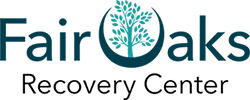It’s not uncommon for people new to recovery to think that once they leave rehab, they can go back to their old lives. Unfortunately, this kind of thinking disregards the underlying reason that led them to become addicted in the first place.
Completing Drug and Alcohol Rehab is just the beginning…
Completing in-patient rehabilitation is a major accomplishment and a major step in establishing sobriety—but alone, rehab is not an end-all cure. Sustaining sobriety requires continual attention, especially during the transition between rehabilitation and reentering the world. While a resident at inpatient treatment, a person is surrounded by support and blocked from temptation. Yet once back in the world, temptation returns.
When a person first enters recovery, drugs and/or alcohol have become the center of their lives. Every waking minute becomes about obtaining and feeling the effects of the substance/s. So, after recovery is over, a person is likely to feel overly confident about their ability to stay clean.
Importance of Continuing Care Aftercare Programs
With this heightened state of self-efficacy, it’s easy to feel in control, but addiction does not just disappear. Because of this, it is essential to create a plan of self-care that includes methods of self-soothing and systems of support. Otherwise, the risk of falling back into old patterns increases.
Aftercare provides a plan of continuing support and counseling in order to maintain sobriety. It is essential to set up an aftercare program before leaving inpatient treatment. For, as we all know, once we are back into the world we left, we become once again vulnerable to emotional and physical triggers.
Relapse Prevention in Early Recovery
According to the National Institute on Drug Abuse, It is estimated that between 40 to 60 percent of people who suffer from a substance abuse dependency will relapse after recovery. One of the danger zones is between three to six months after getting clean. The chance of relapse decreases, however, when a direct plan of action, or aftercare, is established.
Aftercare becomes even more essential for those who just completed a residential inpatient rehabilitation where every hour was pre-scheduled.
 Join our Alumni Program
Join our Alumni Program
Fair Oaks provides a free, continuous alumni program to assist clients in maintaining their sobriety after completion of the program. Alumni of Fair Oaks Recovery Center may attend the Alumni Group for as long as the client remains dependent upon remaining sober, obeys group rules, and positive alumni community member.
Aftercare Programs at Fair Oaks Recovery:
12 Step Programs
The most common outpatient counseling program is 12 Steps, also known as Alcoholics or Narcotics Anonymous. People who choose this route often commit to a lifetime of attending 12-step meetings. In this way, the 12-step support group becomes a lifestyle and a means of continual support.
There are also other support groups available for people who are uncomfortable with the spiritual base of AA.
Intensive Outpatient Treatment
Intensive Outpatient Treatment usually offers several three-hour group sessions during the week that focus primarily on the mind, body, and spirit. Outpatient treatment most often takes place in the evenings in order to not disrupt the individual’s family or work life.
Dual Diagnosis Support
Dual Diagnosis program offers treatment that combines with other mental health problems. Many people who suffer from substance abuse dependency also suffer from other disorders, such as depression or anxiety. Dual diagnosis support helps to identify pre-existing mental health issues or those caused by drugs and/or alcohol.
Failing to address other mental health problems puts a person at risk of relapsing. Dual diagnosis can also direct a person toward the right aftercare program that will fit more specific needs.
Individual Counseling Sessions
An individual counseling session provides one-on-one attention between a therapist and person. This can often help to uncover if a person is dealing with a dual mental health problem.
Some people prefer a one-on-one setting versus a group setting. This option would be the best in discovering the underlying issue that drove the person to substance abuse dependency in the first place.
Sober Living
Sober Living is a shared space between people who are living lives of sobriety. They often share responsibilities. Sober houses do not usually offer group sessions. However, they provide an environment built around a conscious effort toward sobriety.
Establishing an aftercare program before finishing residential inpatient rehabilitation is the best step toward accomplishing further goals and maintaining a sober lifestyle. Fair Oaks Recovery Center of California offers intensive outpatient programs to help clients reach and maintain their long-term goals.
Speak to Someone Now
(888) 576-0222



